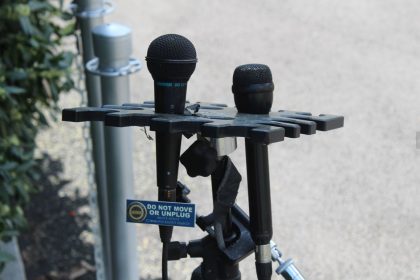DC Circuit Court Rules Against FCC

WASHINGTON — The D.C. Circuit Court of Appeals vacated part of a rule from the Federal Communications Commission that sought to require broadcasters to disclose if foreign governments purchase time on American television and radio airwaves in a Tuesday ruling.
The opinion, written by U.S. Circuit Judge Justin Walker, said the rule that would have required television and radio broadcasters to disclose time purchased by foreign governments or a “foreign governmental entity” on-air was too burdensome. Walker also said the commission did not have the authority to call for the investigation necessary to ensure they were following those rules.
“We hold that the FCC cannot require radio broadcasters to check federal sources to verify sponsors’ identities. We therefore vacate that aspect of the challenged order,” Walker wrote.
He agreed with the National Association of Broadcasters that laws pertaining to licensing only gave the commission the power to require identification information from those companies’ own employees and from program sponsors.
The association “appreciates the court’s careful review of the important issues in this case. Today’s decision ensures that the rules rightly continue requiring the handful of stations airing foreign government-sponsored programming to identify it as such, but removes the burden on the overwhelming majority of stations that never air foreign government-sponsored content,” said Curtis LeGeyt, president and CEO of the association, in a statement.
Commission Chairwoman Jessica Rosenworcel was disappointed by the ruling that cuts into the commission’s authority.
“The principle that the public has a right to know the identity of those who solicit their support is a fundamental and long-standing tenet of broadcasting. It’s about transparency.
“Consumers deserve to trust that public airwaves aren’t being leased without their knowledge to private foreign actors,” Rosenworcel said in a statement.
The rule, which was unanimously approved by the bipartisan board in 2021, was implemented to increase “transparency, ensuring audiences are aware when a foreign government, or its representatives, uses the airwaves to persuade the American public,” according to a statement from the commission.
Foreign governments are not allowed to own broadcast licenses in the U.S. However, they can buy airtime from American television and radio companies.
This rule was supposed to build on other disclosure laws at a time when foreign governments are increasingly attempting to reach Americans. China and Russia have been named as some of the biggest threats by the commission.
Madeline can be reached at [email protected] and @MadelineHughes
























